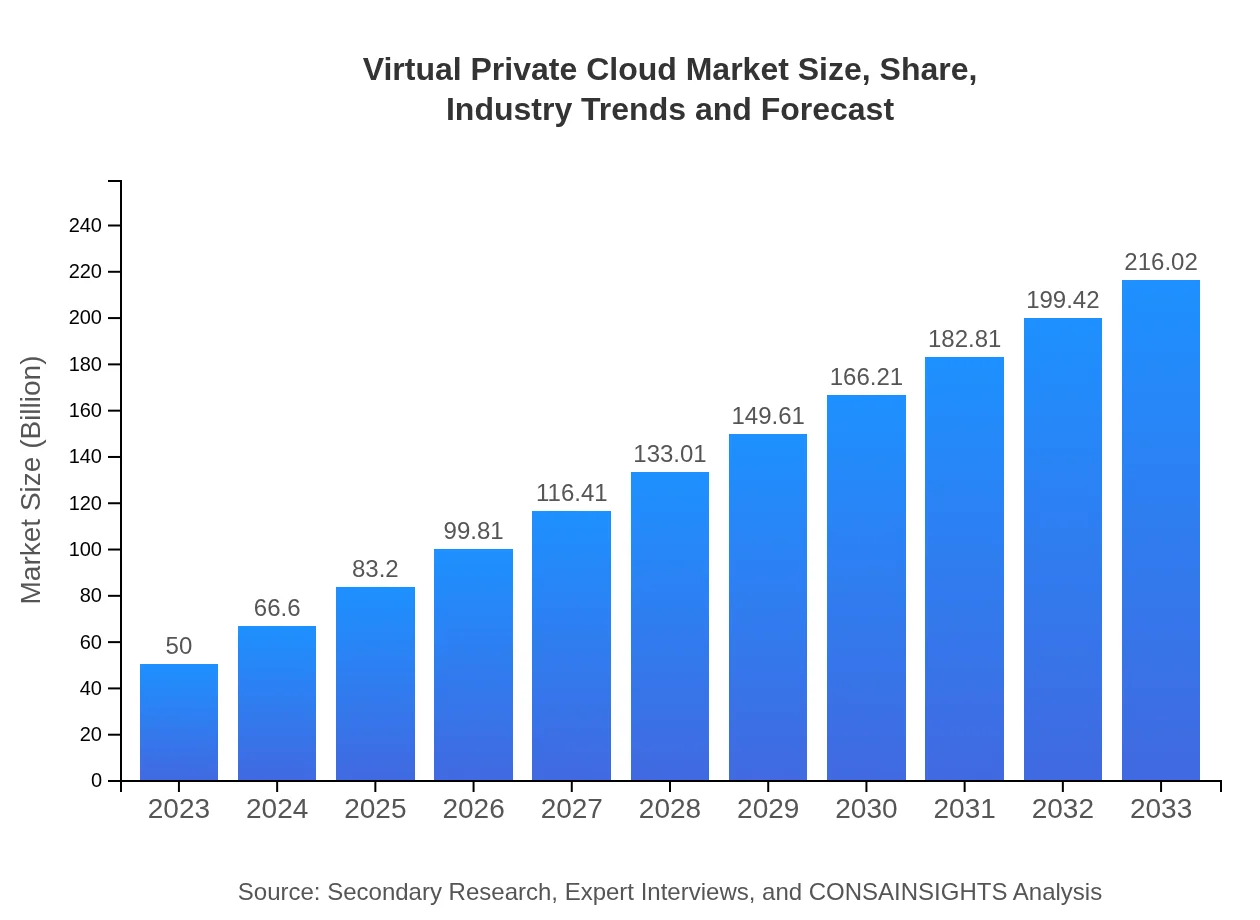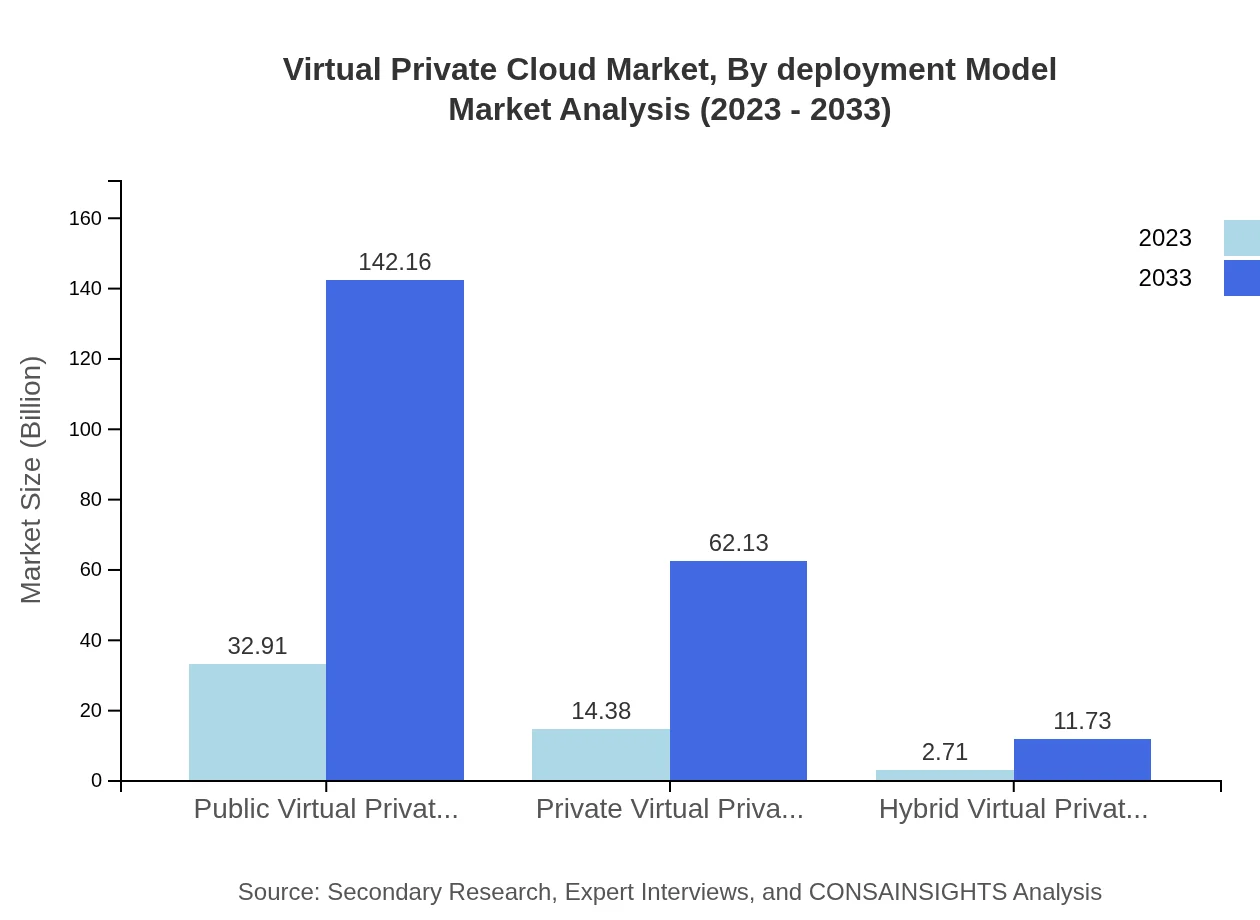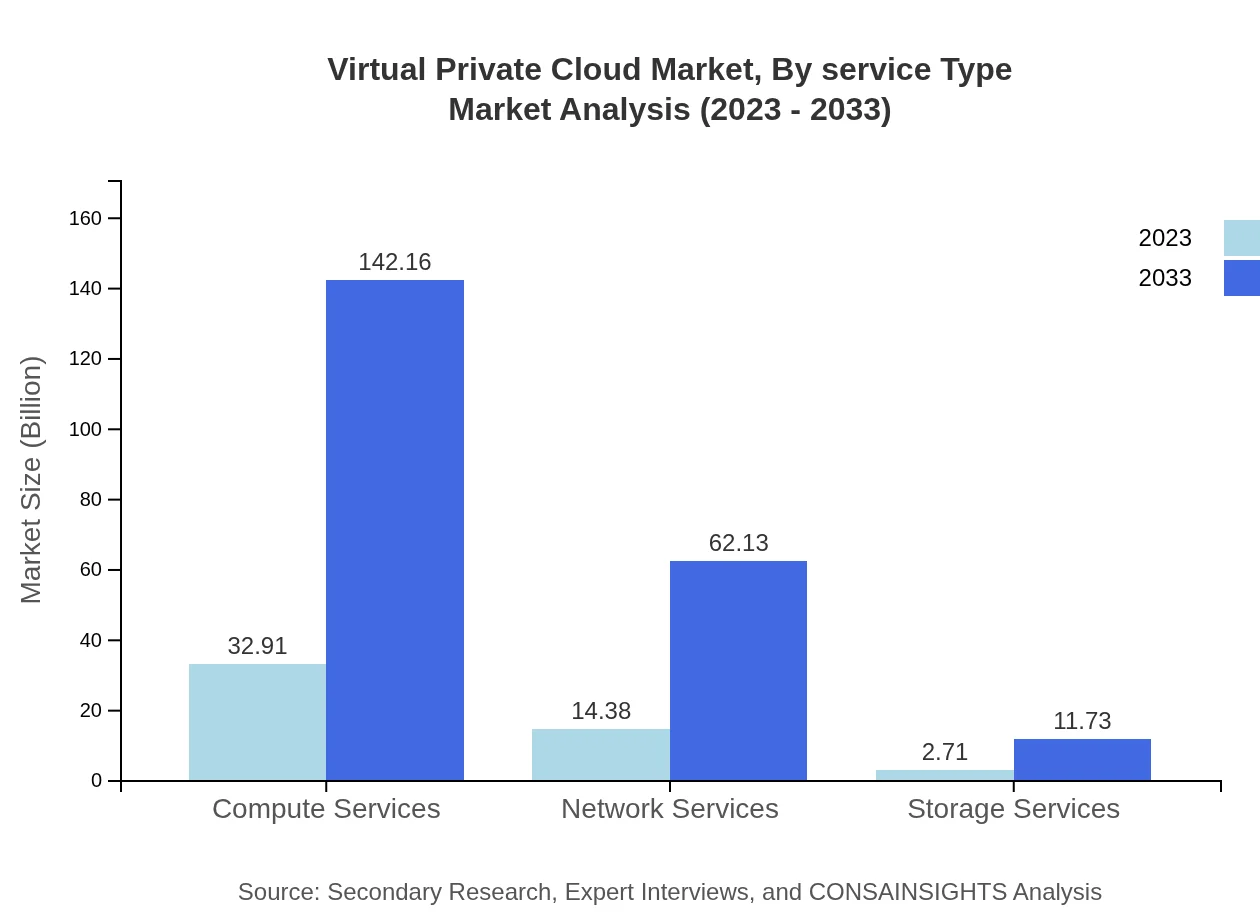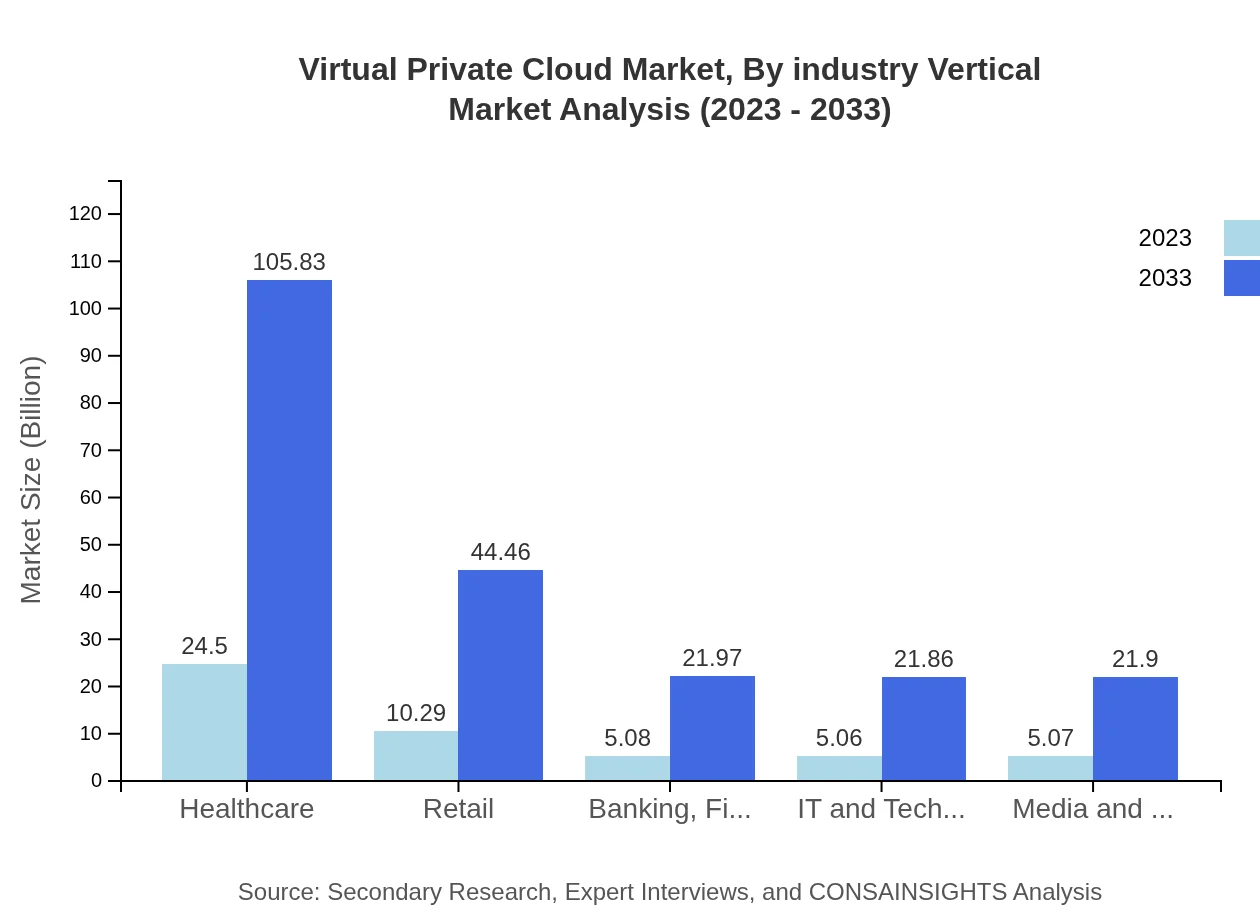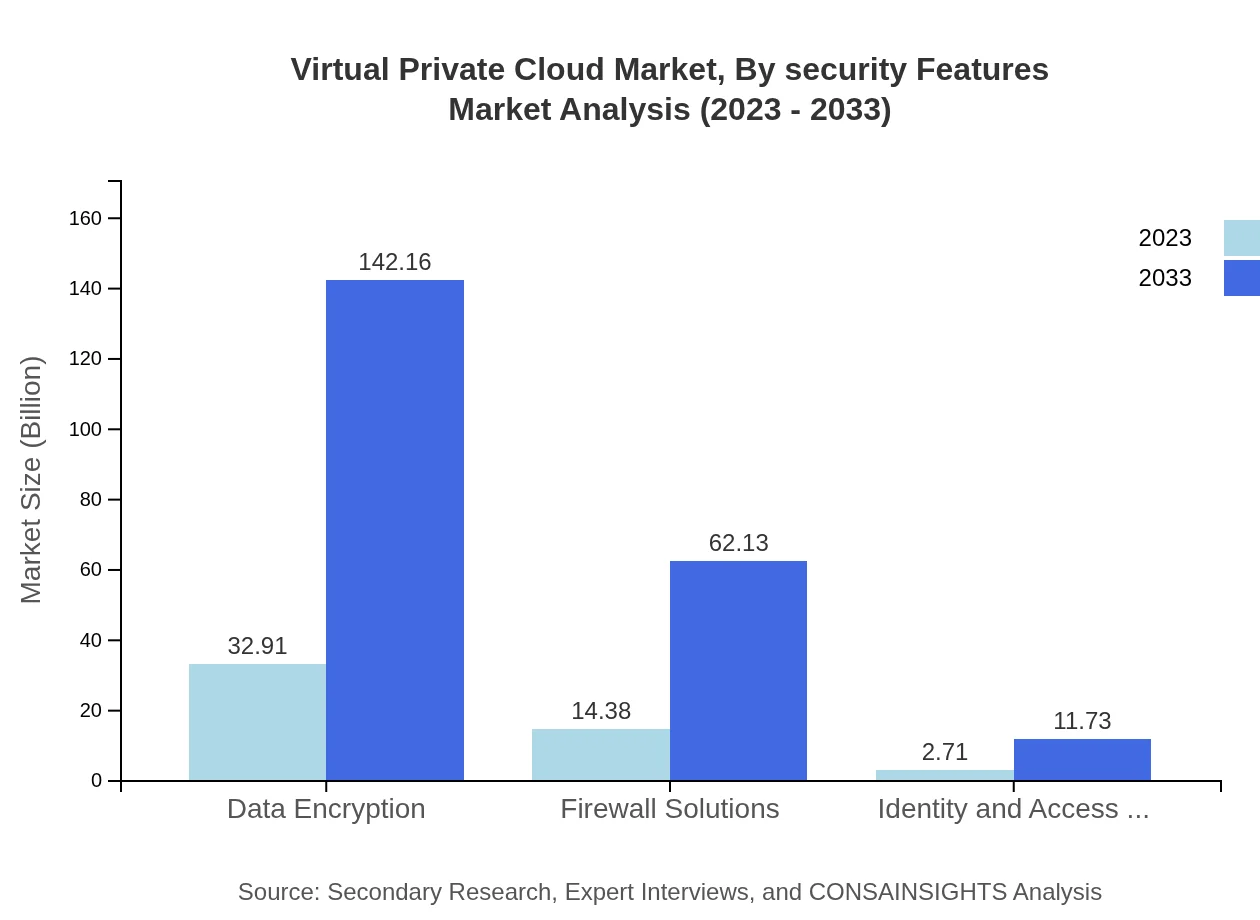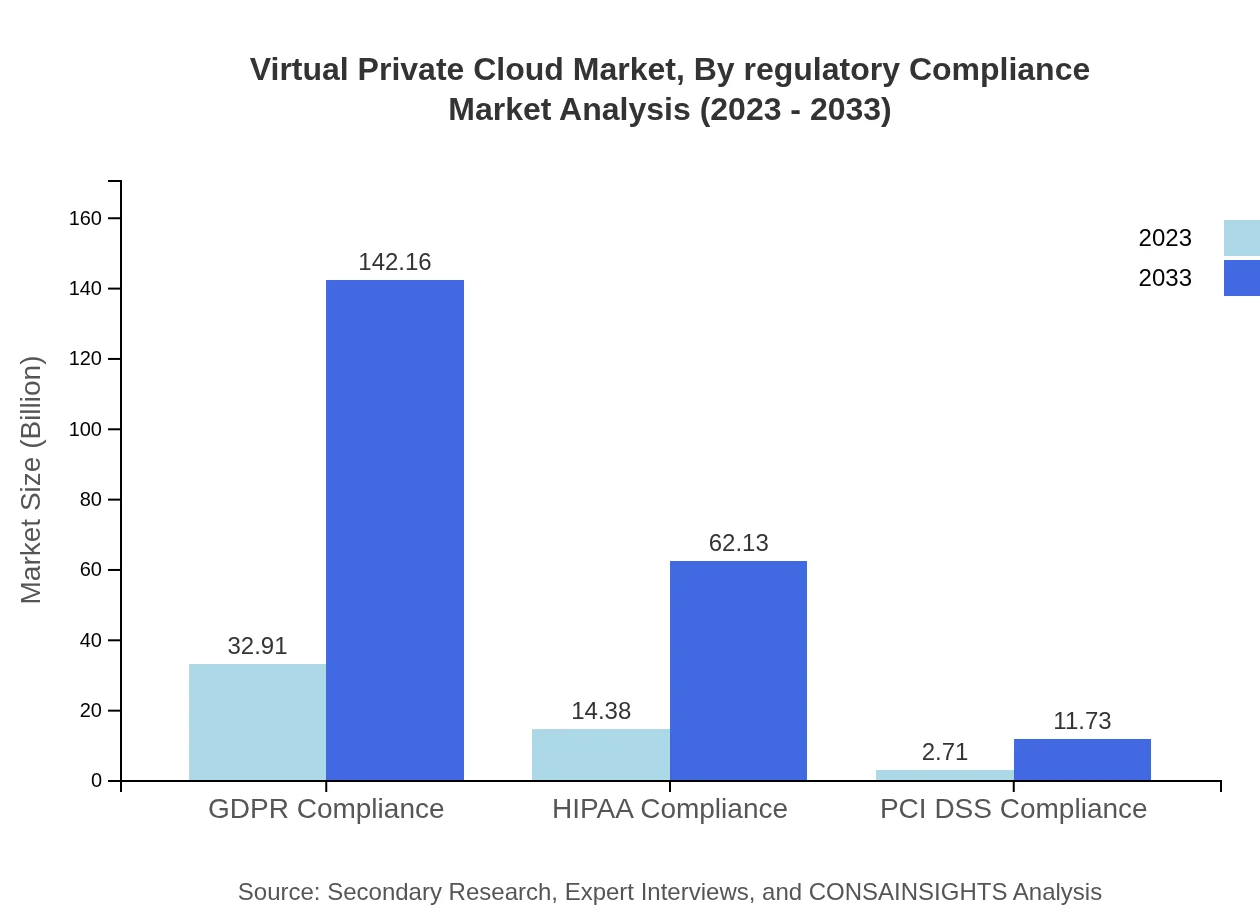Virtual Private Cloud Market Report
Published Date: 31 January 2026 | Report Code: virtual-private-cloud
Virtual Private Cloud Market Size, Share, Industry Trends and Forecast to 2033
This report provides a comprehensive analysis of the Virtual Private Cloud (VPC) market from 2023 to 2033, including market size forecasts, industry trends, regional insights, and competitive landscape while exploring technological advancements and compliance needs.
| Metric | Value |
|---|---|
| Study Period | 2023 - 2033 |
| 2023 Market Size | $50.00 Billion |
| CAGR (2023-2033) | 15% |
| 2033 Market Size | $216.02 Billion |
| Top Companies | Amazon Web Services (AWS), Microsoft Azure, Google Cloud Platform, IBM Cloud, Oracle Cloud |
| Last Modified Date | 31 January 2026 |
Virtual Private Cloud Market Overview
Customize Virtual Private Cloud Market Report market research report
- ✔ Get in-depth analysis of Virtual Private Cloud market size, growth, and forecasts.
- ✔ Understand Virtual Private Cloud's regional dynamics and industry-specific trends.
- ✔ Identify potential applications, end-user demand, and growth segments in Virtual Private Cloud
What is the Market Size & CAGR of Virtual Private Cloud market in 2023?
Virtual Private Cloud Industry Analysis
Virtual Private Cloud Market Segmentation and Scope
Tell us your focus area and get a customized research report.
Virtual Private Cloud Market Analysis Report by Region
Europe Virtual Private Cloud Market Report:
The European VPC market is expected to grow significantly, with projections indicating an increase from $12.18 billion in 2023 to $52.62 billion by 2033, supported by stringent GDPR compliance requirements and an uptick in cloud service demand across various industries.Asia Pacific Virtual Private Cloud Market Report:
The Asia Pacific region is projected to experience robust growth, with the VPC market expected to reach $44.82 billion by 2033, growing from $10.38 billion in 2023, fueled by increasing cloud adoption in countries like India and China and investments in digital infrastructure.North America Virtual Private Cloud Market Report:
North America remains the largest market for VPC, anticipated to grow from $16.05 billion in 2023 to $69.32 billion by 2033, owing to the presence of major tech giants and the high adoption rate of cloud solutions among enterprises seeking secure data handling.South America Virtual Private Cloud Market Report:
In South America, the VPC market is set to expand from $4.72 billion in 2023 to $20.41 billion by 2033. Growth in this region is driven by the rising demand for cloud storage and computing capabilities among SMEs and government initiatives promoting digital transformation.Middle East & Africa Virtual Private Cloud Market Report:
The Middle East and Africa region is emerging as a growth hotspot for the VPC market, expected to rise from $6.68 billion in 2023 to $28.84 billion by 2033, driven by the growing cloud adoption among enterprises looking to enhance operational efficiency.Tell us your focus area and get a customized research report.
Virtual Private Cloud Market Analysis By Deployment Model
The deployment model segment includes Public, Private, and Hybrid VPCs. Public VPCs dominate the market, with a market size of $32.91 billion in 2023, anticipated to grow to $142.16 billion by 2033. Private VPCs follow, with a current market size of $14.38 billion, expected to reach $62.13 billion by 2033. Hybrid models are also gaining traction for organizations seeking to balance security and cost.
Virtual Private Cloud Market Analysis By Service Type
The service type market is divided into Compute, Network, and Storage Services, with Compute Services leading at $32.91 billion in 2023 and projected to reach $142.16 billion by 2033, showcasing widespread demand for processing power, followed by Network Services at $14.38 billion in 2023, growing to $62.13 billion by 2033.
Virtual Private Cloud Market Analysis By Industry Vertical
The healthcare sector showcases the highest demand for VPC services, currently at $24.50 billion and expected to reach $105.83 billion by 2033. Other significant industries include Retail, BFSI, and IT, with robust growth driven by stringent data handling and privacy requirements.
Virtual Private Cloud Market Analysis By Security Features
Key security features include Data Encryption, Firewall Solutions, and Identity and Access Management. Data Encryption is leading with a current market size of $32.91 billion, expected to grow to $142.16 billion by 2033, reflecting the critical need for protecting sensitive information across sectors.
Virtual Private Cloud Market Analysis By Regulatory Compliance
Regulatory compliance is crucial in the VPC sector. Major compliance standards such as GDPR, HIPAA, and PCI DSS are driving market choices. GDPR compliance, for instance, holds a current market share of $32.91 billion and is set to expand significantly as organizations strive to meet regulatory standards.
Virtual Private Cloud Market Trends and Future Forecast
Tell us your focus area and get a customized research report.
Global Market Leaders and Top Companies in Virtual Private Cloud Industry
Amazon Web Services (AWS):
AWS is a pioneer in cloud computing, offering a comprehensive suite of VPC solutions that cater to a vast range of industries, ensuring scalable and highly secure environments for users.Microsoft Azure:
Microsoft Azure provides robust VPC capabilities focusing on enterprise security, data privacy, and compliance, designed to meet the needs of large organizations embracing digital transformation.Google Cloud Platform:
Google Cloud Platform is known for its innovative VPC services that emphasize on scalability, performance, and security, appealing to businesses from startups to large enterprises.IBM Cloud:
IBM Cloud specializes in hybrid cloud solutions, ensuring enterprises can operate securely and efficiently with their VPC offerings, particularly in industries requiring stringent regulatory compliance.Oracle Cloud:
Oracle Cloud focuses on database services within the VPC, catering to businesses that prioritize data management and analytics in their cloud strategy.We're grateful to work with incredible clients.









FAQs
What is the market size of Virtual Private Cloud?
The Global Virtual Private Cloud market is projected to reach approximately $50 billion by 2033, with a robust CAGR of 15% over the forecast period. This indicates significant growth potential as businesses increasingly shift to cloud-based solutions.
What are the key market players or companies in the Virtual Private Cloud industry?
Key players in the Virtual Private Cloud industry include Amazon Web Services, Microsoft Azure, Google Cloud Platform, IBM Cloud, and Oracle Cloud. These companies are leading the market with their innovative cloud solutions.
What are the primary factors driving the growth in the Virtual Private Cloud industry?
Growth in the Virtual Private Cloud industry is driven by increasing demand for scalable cloud solutions, heightened security concerns, regulatory compliance needs, and the growing shift towards remote work environments post-COVID-19.
Which region is the fastest Growing in the Virtual Private Cloud?
North America is forecasted to be the fastest-growing region in the Virtual Private Cloud market, expanding from $16.05 billion in 2023 to $69.32 billion by 2033, showcasing its pivotal role in cloud technology innovation.
Does ConsaInsights provide customized market report data for the Virtual Private Cloud industry?
Yes, ConsaInsights offers customized market report data for the Virtual Private Cloud industry, tailoring insights to meet specific business needs and providing detailed analysis across various segments and regions.
What deliverables can I expect from this Virtual Private Cloud market research project?
You can expect comprehensive deliverables including detailed market analysis, competitive landscape reports, regional insights, segment data, and strategic recommendations tailored to enhance your business decisions in the Virtual Private Cloud space.
What are the market trends of Virtual Private Cloud?
Key trends in the Virtual Private Cloud market include increased incorporation of AI for better resource management, the rise of hybrid cloud solutions, focus on enhanced data security, and growing partnerships among technology providers to expand services.

